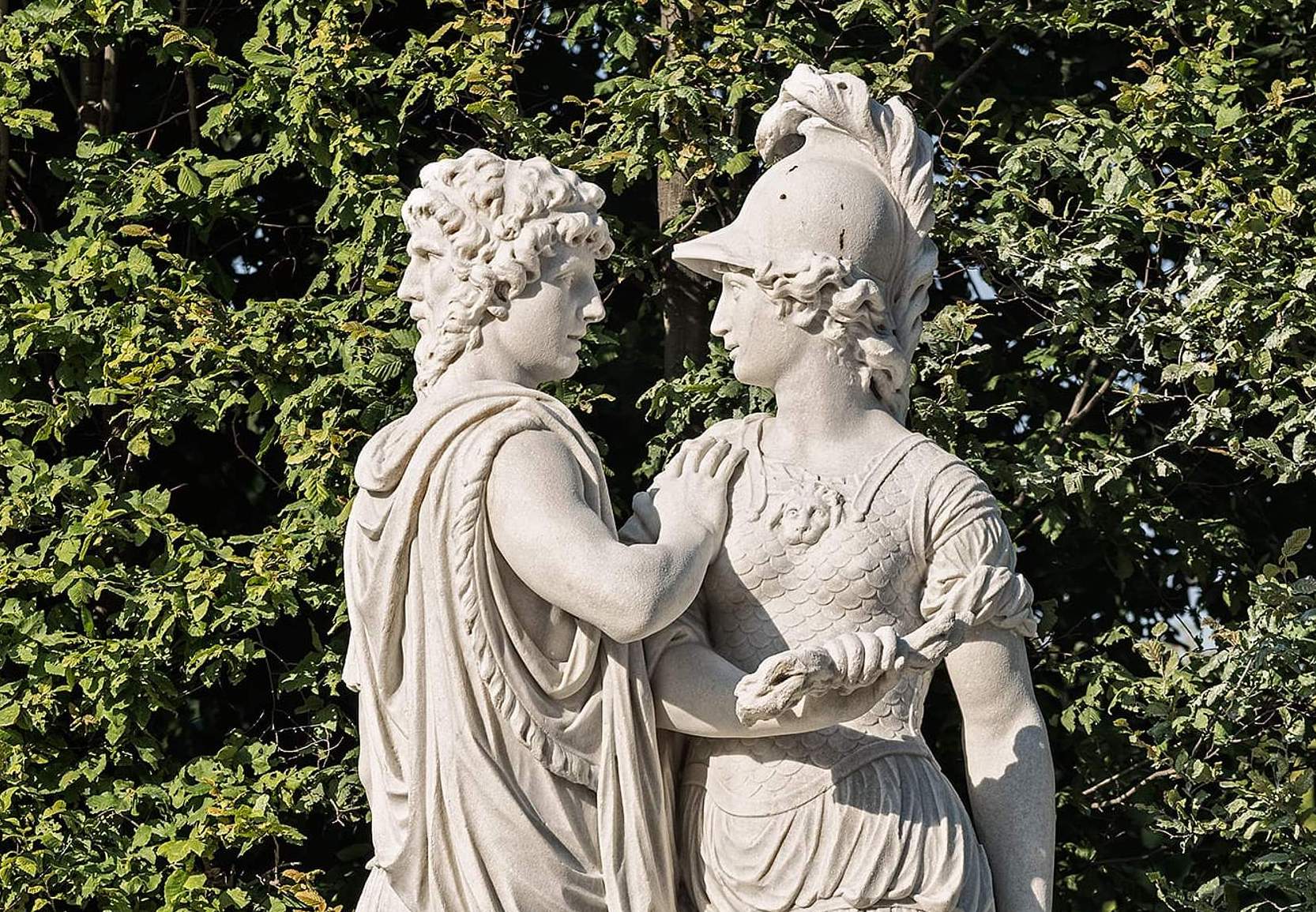Every year, when January rolls around, my interest in the history and mythology of our calendar peaks. After 300 days of March, I was particularly glad for this January to arise. And since we’re already well into February, it seems our cultural clock is ticking again.
To mix myths, it’s a bit like springtime starting with the reunification of Demeter and Persephone… but I’ll leave that story for another article.
January, the Month of Janus
January, the month of Janus, marks the beginning of each year. It’s a time to reflect upon the past, learn from it, and apply newfound wisdom to create the future. Either one without the other means stagnation.
Janus originated in ancient Rome and is one of the few gods for whom the Greeks had no analogue. As such, he is not a storied character, but an anthropomorphized concept.
He was depicted as having a single head with two faces. In the image, his youthful face appears to be focused on and perhaps courting, the war goddess Bellona. His elder face gazes out at the horizon.

His younger aspect gives full attention to what is right in front of him, the present moment, while his aged aspect can see the bigger picture of the world and holds life in greater perspective. Janus is able to see what is before him, but also sees and learns from the past. Great leadership involves being able to balance these two perspectives, the sometimes rash boldness of youth and the wisdom of experience.
The Janus Archetype
Janus is the god of beginnings, doorways, thresholds, and transitions. The Roman Temple of Janus features double doors which were called the gates of war. Under the Roman Empire, the gates remained open during wartime (meaning nearly always), to signal that Rome stood ready to unleash its military forces. In Latin, the god’s name, Ianus, means an arched passage or doorway.
Janus delineates war from peace and presides over the beginning and end of conflict. He is associated with specific beginnings and transitions involving the sun, moon, the year, doorways, and gates. More esoterically, he also embodies the cosmological principle of time and motion. In Roman religious ceremonies, he was invoked before other deities as the keeper of the gate between Heaven and Earth.
Janus Wisdom
Giving the past its due by reviewing it honestly and clearly allows the bigger picture to emerge. Then you can set goals that put your learning to good use. It’s equally important to leave the past where it belongs. Behind you. Learning from your past should inform your future, but what’s done is done, and it is a waste of energy to wish anything had turned out other than it did.
January may be a month associated with reflection and resolutions, but the Janus archetype is available anytime. His time is the morning, as each day is a microcosm of a week, month, year, life stage, or even lifetime.
